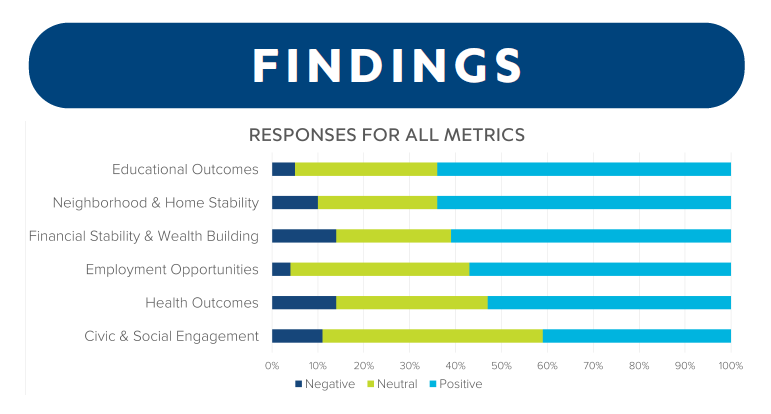 (From the summer 2024 print newsletter) At Pikes Peak Habitat for Humanity, we know homeownership is transformational for the families in our program—we see the proof when we visit our neighborhoods and hear our homeowners’ stories! But now, thanks to a study by Ashley Peacock, a student in the Master of Public Administration program in the College of Public Service, University of Colorado at Colorado Springs, we have data to show the impact.
(From the summer 2024 print newsletter) At Pikes Peak Habitat for Humanity, we know homeownership is transformational for the families in our program—we see the proof when we visit our neighborhoods and hear our homeowners’ stories! But now, thanks to a study by Ashley Peacock, a student in the Master of Public Administration program in the College of Public Service, University of Colorado at Colorado Springs, we have data to show the impact.
Peacock contacted 120 Pikes Peak Habitat homeowners and asked them to respond to a survey focused on six specific areas: educational outcomes, neighborhood and home stability, financial stability and wealth-building, employment opportunities, health outcomes, and civic and social engagement. Forty-one people responded, which is about 33% of those contacted, she says. Although that might sound low, the average response for surveys is around 25%—so our participation was higher than typical.
She found that overall, 93% of respondents said their lives have become better since they moved into their homes.
“We had some open-ended questions, and a lot of the responses talked about stability and feeling a sense of security and less anxiety, and that was really mirrored in the literature” about the topic, says Peacock. “There’s kind of a cascading effect when you’re facing housing instability. It’s one thing after another, like a Jenga tower. So seeing the responses from the homeowners who felt so much gratitude for having that stability that echoed into other parts of their life—they said their children felt more comfortable and relaxed; the children knew their parents had less anxiety. And so you see the ripple effect.”
 Peacock’s findings showed that since they moved into their homes,
Peacock’s findings showed that since they moved into their homes,
- 77% of homeowners felt better about their children’s future
- 88% felt more stable in their living situation
- 82% reported better financial security
- 58% felt better about their job prospects
- 64% felt less stressed
- 66% spent more time with their families.
See additional results in each area of the survey.
Peacock notes that her findings in some categories—such as educational and financial outcomes—matched what she expected, based on previous studies she found when she started the project. The outcomes in health and civic engagement were lower than she’d anticipated, though. She says factors such as “the larger sociopolitical landscape” and the COVID-19 pandemic may have played a role.
She also comments that Habitat’s sweat equity requirement contributes to the positive outcomes of our homeownership program.
“There were some [studies] I included that looked at Habitat and the impact of Habitat across different regions of the United States, and a lot of those studies were saying the same thing: that sweat equity helped with community building,” she says.
The survey results bear this out in El Paso County, Peacock explains. “It is a really interesting way to pay it forward and get your homeowners engaged in their communities.”

